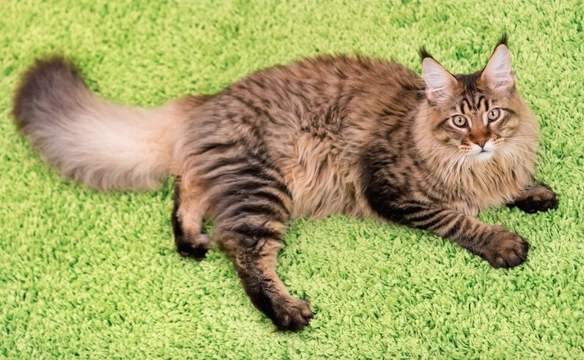
Cow Hocks in Cats
Sound conformation in cats is important whether they are show cats or pets because if there is a problem with their skeletal structure, it can seriously and negatively impact their general health and well-being more especially as they get older and reach their senior years. A cat that is "cow hocked" sees their hind legs turning inwards which in turn means their feet point outwards instead of forwards as they should and this can put a lot of extra pressure on their hips and spines which can eventually lead to all sorts of painful health issues which includes arthritis.
The Problems Caused by Cow Hocks
As previously mentioned, having cow hocks places a lot of stress and extra pressure on a cat's hips as well as their spines which in turn can lead to them suffering from spinal issues and arthritis. All too often cats do not show they are in pain until their condition has deteriorated to such an extent that it can have cause irreversible damage which means their condition can only be managed rather than treated and cured.
The Causes
Studies have established that there is a genetic link and that cats may inherit the abnormality in their skeletal structure from their parents. As such, any cat with the deformity should not be used for breeding purposes and should either be spayed or neutered to ensure they cannot mate even unintentionally.
The Importance of Careful Breeding
It cannot be stressed enough the importance of not using cats with cow hocks for breeding purposes which is the only real way of reducing the risks of kittens being born with the abnormality. Responsible breeders would ensure that all stud cats are healthy with no physical issues and this includes in their bone structures so they don't develop any health issues associated with being cow hocked later in their lives.
Cats shown whether in England or in other countries of the world, are judged on their conformation and will lose points for any abnormalities which includes being cow hocked and as such breeders are being even more careful when it comes to choosing the right cats to breed so they only produce the best examples free of any defects of skeletal abnormalities.
Living with a Cow Hocked Cat
It's important to keep a close eye on a cat when they are cow hocked and if there are any signs of there being a problem, to take them to the vet so they can be checked over. The vet would want to establish if a cat has developed any spinal issues as a result of them being cow hocked and to see if their hips have been compromised by their physical abnormality. A lot of cats with this particular skeletal defect suffer from a condition known as arthritis which is an extremely painful disorder. A vet would typically recommend treating cat with arthritis on a long-term basis with the end goal being to make life as comfortable as possible for them because there is no cure for this painful condition that is often associated with cow hocks in cats.



